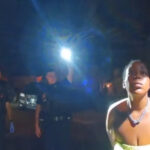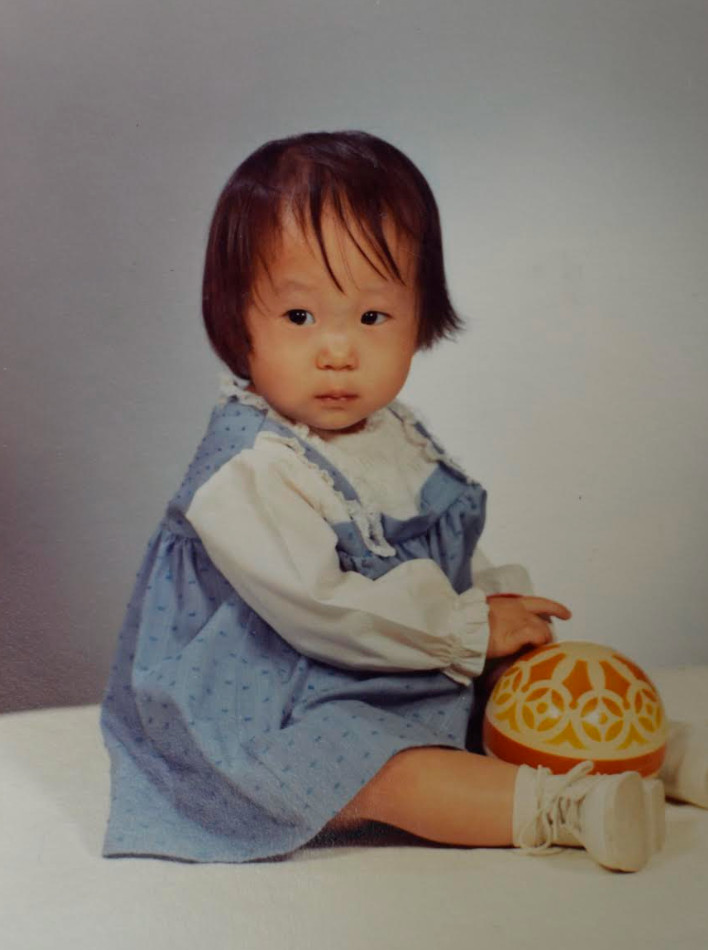 Cat Powell-Hoffmann as a toddler in South Korea, wearing a onesie.
Cat Powell-Hoffmann as a toddler in South Korea, wearing a onesie.
The author at 2 years old.Courtesy of Cat Powell-hoffmann
In the early days of June 2011, a single email landed in my inbox, unknowingly poised to redefine my life’s trajectory. The sender was an individual from the adoption agency that had facilitated my rehoming as a newborn. Her mission was to locate someone bearing my maiden name, an orphan from South Korea who had been sent abroad 38 years prior, clad in a onesie adorned with tiny red hearts. She was searching for someone who mirrored my very existence.
Initially, impatience gnawed at me. I was consumed by the need to uncover the identity of my seeker. Was it a distant relative, a long-lost uncle, or a third cousin? Could it perhaps be a step-sibling emerging from the shadows? The notion of a biological parent seemed improbable, given my adoption records explicitly stating “abandoned at birth with no living relatives.” My adoptive parents had been informed that my biological mother was likely facing destitution, youth, or both – common assumptions surrounding orphaned babies from South Korea during that era. Scenarios painted her as a shamed high school student or a sex worker, societal prejudices clouding the reality of countless untold stories.
Advertisement
After diligently confirming my identity, the adoption agency representative sent a final, pivotal email. “You are indeed the person I have been searching for. Would you be available for a phone call next week?”
My response was immediate and unwavering – I insisted on speaking that very day. Suspense and surprises have never been allies of my personality. I am the type to preemptively explore movie endings or delve into the final chapter of a book before even beginning page one.
Advertisement
When the call connected, the woman from the adoption agency started with a cautionary question: “Are you sitting down?”
“Yes,” I confirmed.
“And you’re not operating a vehicle?”
“No,” I reassured her.
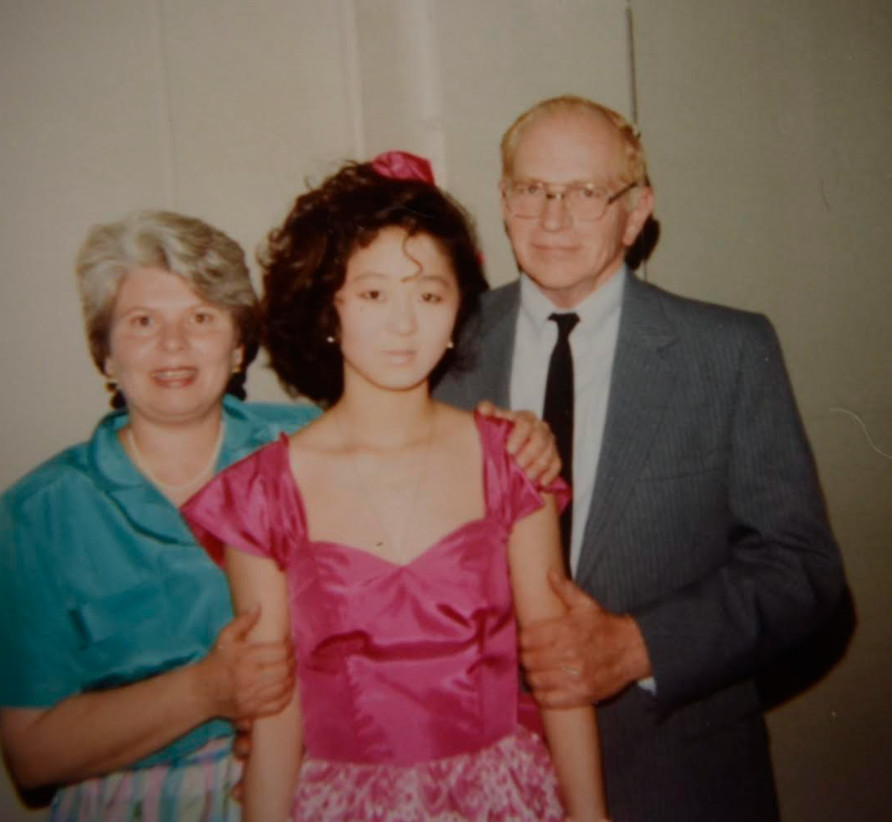 Cat Powell-Hoffmann with adoptive parents at her eighth-grade graduation.
Cat Powell-Hoffmann with adoptive parents at her eighth-grade graduation.
The author with her parents at her eighth grade graduation.Cat Powell-Hoffmann
Advertisement
“Okay, good. I have wonderful news. You have family in South Korea. Your mother is alive and in good health,” she announced. Then, a somber shift, “I am deeply sorry to inform you that your father passed away due to lung cancer. You have two younger brothers, and…” A pause hung in the air, thick with unspoken revelation. “You have a twin sister.”
“Oh my God,” escaped my lips, a mantra of disbelief. “Oh my God.”
The call ended, and I physically recoiled, collapsing onto the hardwood floor, breathless and immobile.
A profound sense of isolation washed over me, paradoxically amplified by the newfound knowledge that I was not alone. A tempest of emotions surged within – numbness battling grief, intertwined with a strange thrill. My mind involuntarily replayed childhood memories, summers spent in solitude, wrestling with an inexplicable loneliness. Despite a loving adoptive family and friends, this persistent loneliness had been an unshakeable companion. Unbeknownst to me, a twin sister existed, a missing piece in the puzzle of my identity.
Advertisement
Later that day, the promised letters arrived – one from my twin sister and another from my birth mother. My mother’s letter was the first I opened.
Addressed to my Korean orphan name, Yi Soon, and signed simply “From, your mom,” it unlocked a torrent of tears. Her words were delicate, poignant, as if emotions were fragile snowflakes carefully placed on the page. The closing line, “I can’t believe this is real,” resonated deeply, intensifying my emotional response.
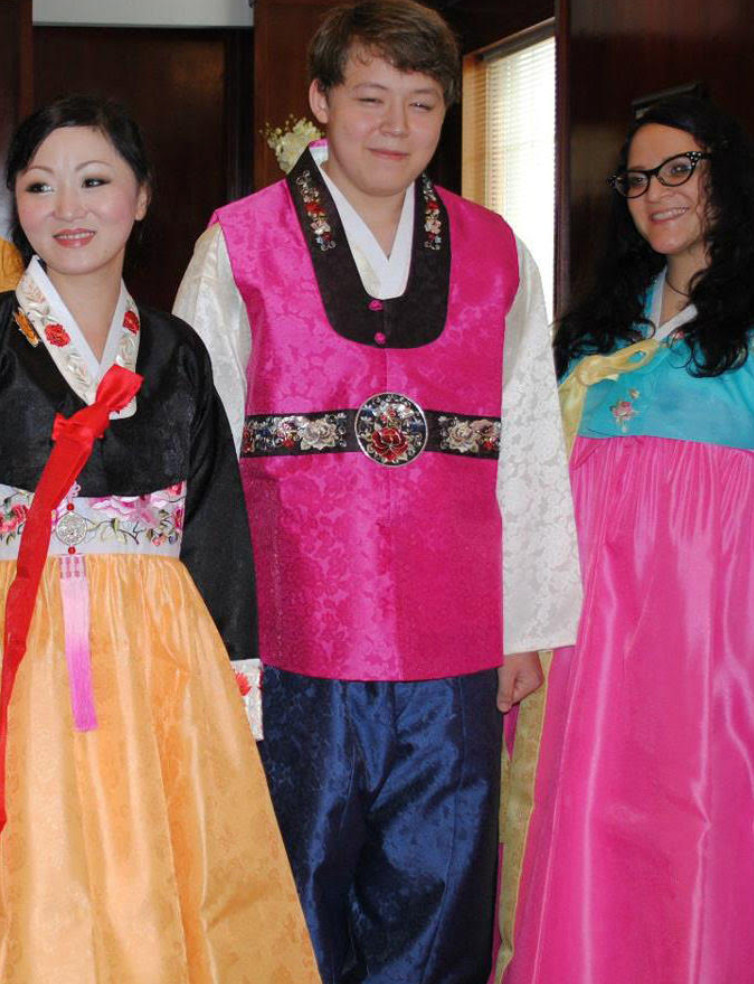 Cat Powell-Hoffmann, son, and friend Jackie at Korean family reunion in 2011.
Cat Powell-Hoffmann, son, and friend Jackie at Korean family reunion in 2011.
The author (left) with her son and her best friend Jackie at the reunion with her mom and twin sister in 2011. “My Korean family brought along hanboks for all of us,” she writes.Courtesy of Cat Powell-Hoffmann
Advertisement
My twin’s letter was even more impactful. She wrote of shared passions – motherhood and fine art, mirroring my own life. She mentioned illustrating “Anne of Green Gables,” a cherished book series of mine, for a Korean publisher. Dislikes for seafood and a shared love for beer further cemented our uncanny parallels. It was as if we had lived separate yet intertwined lives, an idea both exhilarating and heartbreaking. The lost years, the shared experiences we missed, weighed heavily.
Could this be the source of that persistent childhood loneliness? Was she the missing half I had unknowingly searched for?
These letters erected an emotional barrier, a deep chasm isolating me within a whirlwind of feelings – my own, my mother’s, and my twin’s.
Advertisement
Two months later, the adoption agency orchestrated a reunion. The initial plan of meeting in Seoul shifted to Tulsa, Oklahoma, at the agency’s corporate headquarters. The reasoning was to ease my transition into this new reality, a sentiment I appreciated. This reminded me of a high school incident where my teacher, attempting to illustrate American cultural diversity, asked me about my car and favorite meal. My utterly “American” responses – a 1983 Ford Taurus and a Big Mac – derailed his lesson, as he declared, “Never mind, she’s all American.”
In August, I journeyed to Tulsa, accompanied by my son and two close friends. My parents, though supportive, couldn’t make the trip due to my father’s declining health.
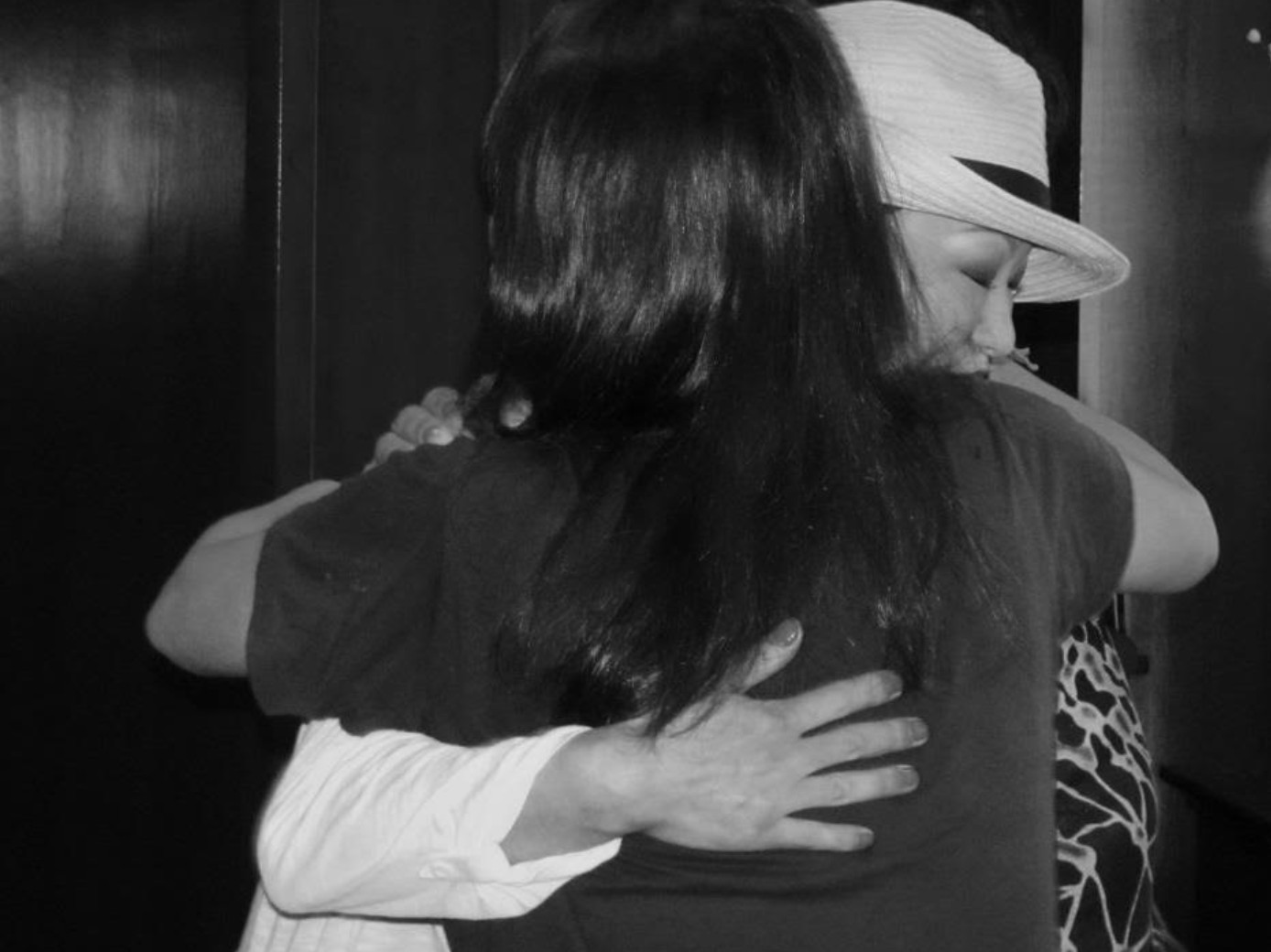 Cat Powell-Hoffmann embracing her twin sister for the first time.
Cat Powell-Hoffmann embracing her twin sister for the first time.
The author hugging her twin sister for the first time.Courtesy of Cat Powell-Hoffmann
Advertisement
On reunion day, the agency representative welcomed us warmly, providing a tour and introducing us to the CEO. Then, the moment arrived. My friends were guided to a conference room, while my son and I waited, anticipation building. Inside, my birth mother and twin sister awaited, creating a palpable tension.
The silence was thick, heavy with unspoken emotions. Then, gasps broke the stillness, mirroring my own sharp intake of breath. Two women rushed towards me, arms outstretched, tears streaming. My hand instinctively flew to my chest, attempting to ground my racing heart.
Recognition was instant. My twin was a mirror image – shared features, gestures, even laughter. It was surreal, seeing my own face and hearing my voice emanating from a stranger, separated only by language. The realization of shared origins, a womb once shared, after 38 years of separation, was profoundly disorienting.
Advertisement
My birth mother possessed a timeless beauty. Her short, curly black hair, typical of an ajumma, belied a youthful spirit. Humble yet spirited, she seemed to subtly conceal an inner strength. Her smile mirrored my son’s – the curve of her mouth, the shape of her eyes, a tangible connection across generations.
Her first words were “Mianhae,” Korean for “I’m sorry,” followed by “Saranghae,” “I love you.” Turning to my twin, she repeated “Saranghae,” a poignant moment of unified maternal love.
With a translator’s assistance, the reunion unfolded, a torrent of information overwhelming my senses.
Advertisement
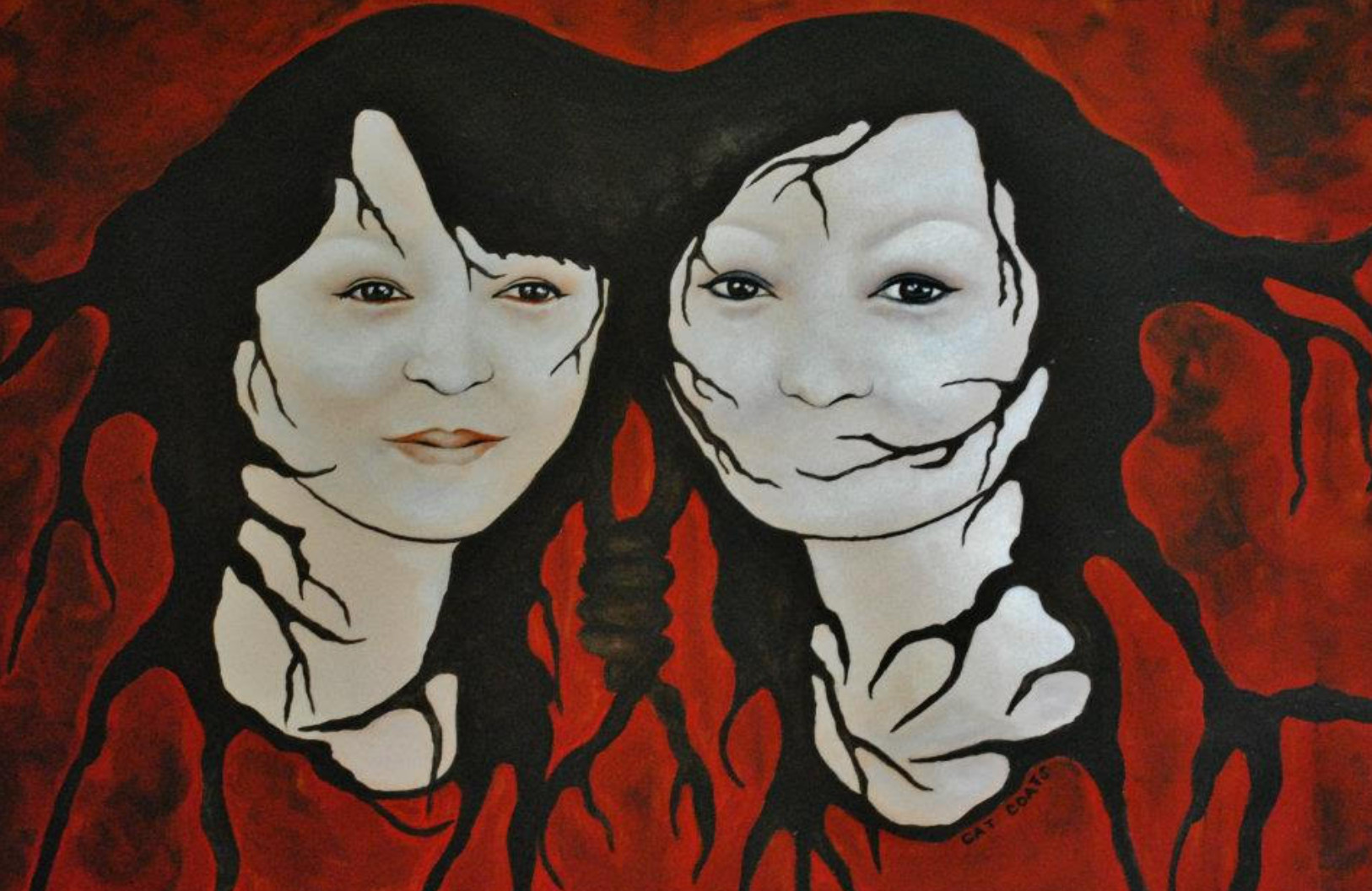 Painting "There Are No Words" by Cat Powell-Hoffmann reflecting reunion emotions.
Painting "There Are No Words" by Cat Powell-Hoffmann reflecting reunion emotions.
A painting titled “There Are No Words” that the author finished after meeting her twin.Courtesy of Cat Powell-Hoffmann
I learned new names – “Omma” for birth mother, “Appa” for birth father. I discovered my twin was older by 15 minutes. My Korean name, Soon Yi, was my aunt’s name reversed. Twins, I learned, were considered unlucky in Korea in 1973. My aunt had pressured Omma to choose, to keep one and relinquish the other. Appa, in his final moments, had called out for me. Omma’s declaration of love to my twin was the first time she had spoken those words aloud to either daughter, a heartbreaking consequence of an impossible choice.
Leaving that conference room felt like a rebirth. Denied the right to name me at birth, Omma finally bestowed upon me the name Jinah, and my son, Jin-Yeong. My adoptive family expanded, gaining Korean relatives. Belonging, I thought, felt good, yet complexities soon emerged.
Advertisement
Omma’s attempts to bridge the lost years were challenged by cultural chasms. Differences in understanding and vastly different lives created friction.
Korean culture’s emphasis on respecting elders became quickly apparent. During a Seoul visit, unintentional offenses piled up – my aversion to seafood, tardiness, a social media photo of Omma, and the casual enjoyment of beer in her presence. A coldness descended, affection withdrew, leaving us adrift in a foreign city.
Regret washed over me – carelessness, outspokenness, a failure to research Korean customs. By the time Omma returned, “Mianhae! Mianhae, Omma!” were my only words.
Advertisement
I longed to explain my independent adulthood, my decades of self-direction. I wanted to promise to be a good daughter, to ask for patience as I navigated this new reality. They had known of me for years; I had known of them for mere months.
Language barriers reduced communication to charades, hindering any meaningful heart-to-heart conversations.
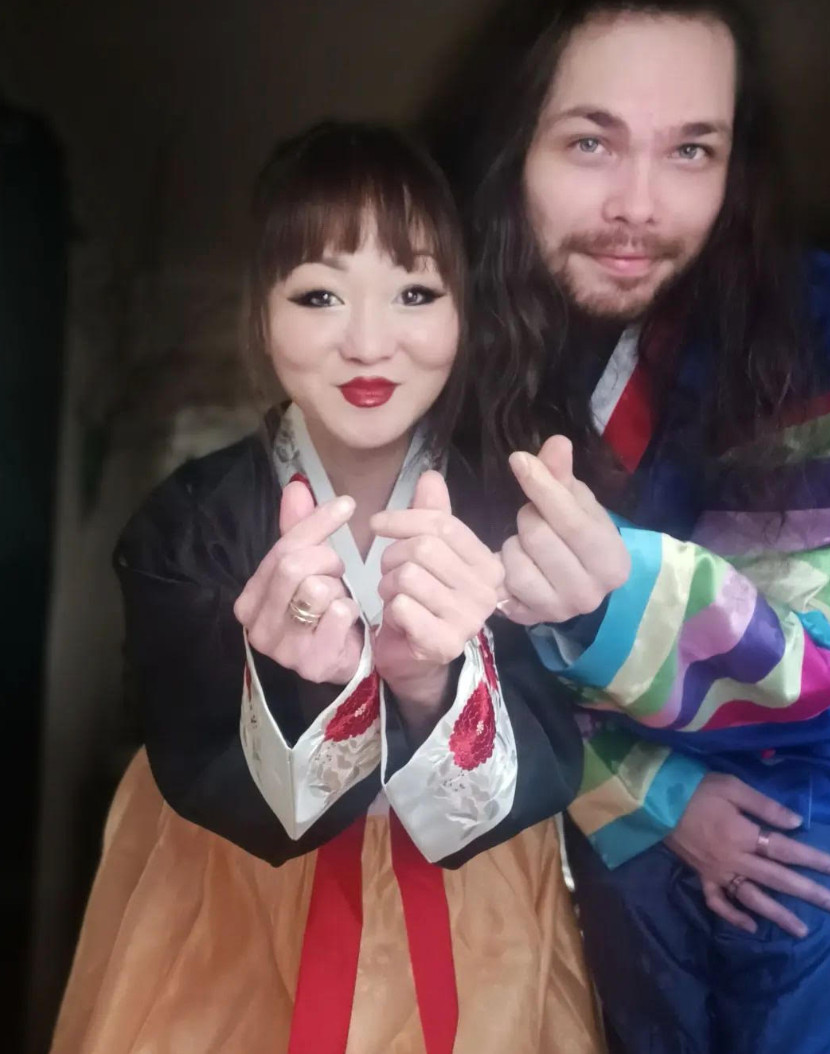 Cat Powell-Hoffmann and husband in hanboks celebrating their anniversary.
Cat Powell-Hoffmann and husband in hanboks celebrating their anniversary.
The author and her husband dressed in their hanboks on their one-year wedding anniversary.Courtesy of Cat Powell-Hoffmann
Advertisement
Meeting my birth family has been a bittersweet gift, propelling Cat Powell-Hoffmann on an unexpected journey of self-discovery. It challenged my perceptions of identity, origin, and family, reshaping my future path. It gifted both my son and me a lineage, a history to claim.
Two years have passed without contact. Discussions of dual citizenship, housing, and Hangul lessons were abruptly halted by the pandemic’s upheaval. A shared desire for connection clashed with life’s unpredictable turns – the pandemic, my son’s return from military service, Omma’s second husband’s passing, my father’s subsequent death, and my marriage. Life became a whirlwind of difficulty, exhaustion, and new beginnings, obscuring the path forward with my Korean family.
Reunion remains a hope. Omma has yet to meet her son-in-law, and my husband, the other “me.” Knowing they are out there, Cat Powell-Hoffmann cherishes the bond and hopes to bridge the distance once more.
Advertisement
Cat Powell-Hoffmann is an accomplished fine artist and writer residing in the Pacific Northwest. A Moth Mainstage storyteller, her work has graced numerous art and literary publications. Cat’s art has been exhibited extensively along the West Coast. She is currently crafting a book of essays exploring adoption, love, midlife, and motherhood. Beyond painting and writing, Cat Powell-Hoffmann lends her voice as a backup vocalist for the post-punk band Princess Ugly and enjoys Netflix binges with her husband, son, and furry companion in their Portland, Oregon home.

